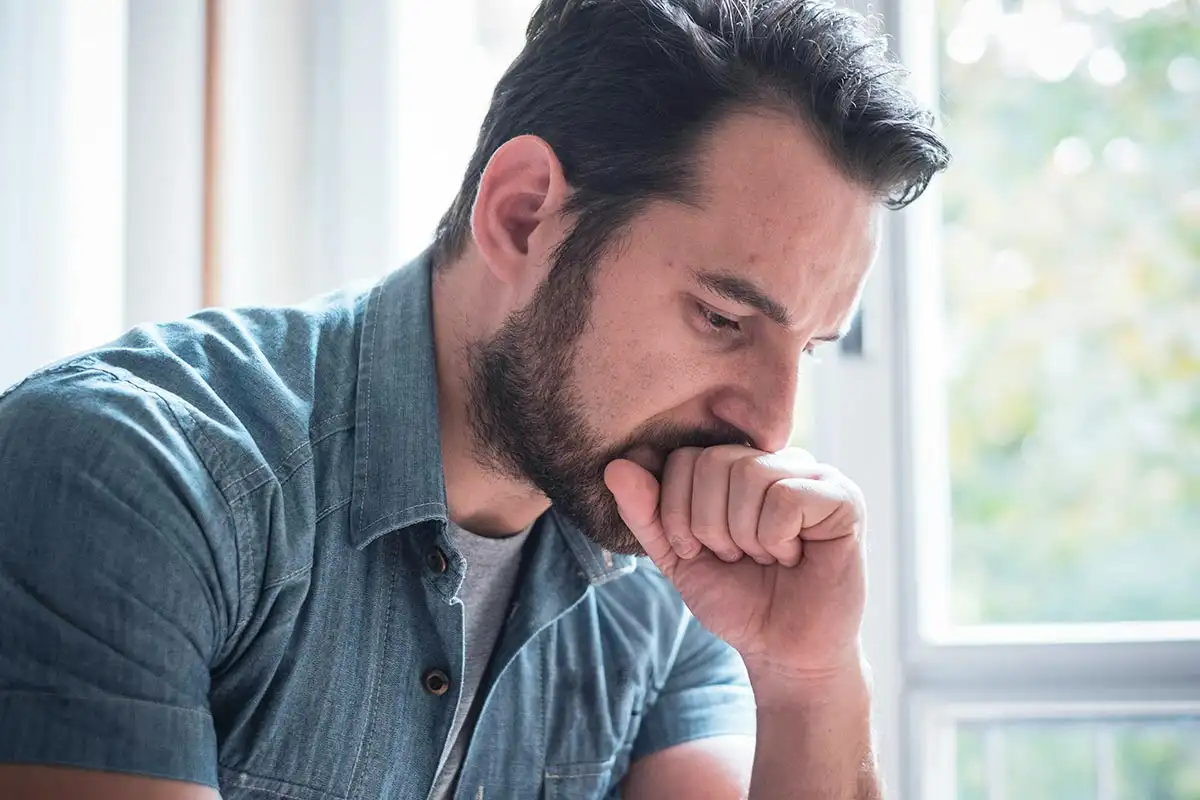
Addressing Homelessness and Addiction in San Francisco: A Compassionate Approach
Medically Reviewed by:

Dr. Marco M. Zahedi
Medical Director, Compassion Recovery Center

Dr. Michael Majeski
Licensed Psychologist (LP), Compassion Recovery Center
Table of Contents
Understanding the Intertwined Crisis: Homelessness and Addiction in San Francisco
San Francisco, a city celebrated for its innovation and vibrant culture, is also at the epicenter of a profound human crisis: the intersection of homelessness and addiction. Walk through many parts of the city, and the signs are unmistakable – individuals struggling to survive on the streets, often visibly battling the chains of substance use. This isn’t just a policy issue; it’s a matter of human dignity and community well-being. Addressing homelessness and addiction in San Francisco requires more than just temporary fixes; it demands a deep, unwavering commitment to a compassionate approach. It means seeing the person behind the struggle, understanding the complex factors at play, and offering pathways to healing that are accessible, respectful, and effective.
At Compassion Recovery Center, we believe that everyone deserves a chance at a healthy, fulfilling life. While we are a specialized remote drug and alcohol rehab provider primarily serving Orange County and wider California through telehealth, the principles of compassionate care and the innovative solutions we offer, such as Virtual IOP Program and telehealth addiction treatment, hold valuable lessons and provide accessible options for individuals facing these challenges, regardless of their specific location within California. Our mission is to break down barriers to recovery, offering flexible and confidential support to those who need it most. If you or someone you know is struggling, we encourage you to reach out today to learn how we can help.

The Scale of the Challenge: Homelessness and Addiction by the Numbers
To truly grasp the urgency of the situation in San Francisco, it’s important to understand the scale of the problem. While exact numbers fluctuate, reports consistently indicate that tens of thousands of individuals experience homelessness in the Bay Area, with a significant concentration in San Francisco. According to the 2022 San Francisco Point-in-Time Count, there were an estimated 7,754 homeless individuals, with a significant portion being unsheltered. These aren’t just statistics; they represent men, women, and sometimes families, each with a unique story, facing unimaginable hardship.
The connection between homelessness and addiction is undeniable and tragically synergistic. It’s a devastating cycle where one often fuels the other. Studies and street-level observations reveal that a large percentage of the homeless population struggles with substance use disorders. For some, addiction may have been a contributing factor to losing their housing – job loss, broken relationships, and financial ruin are common consequences of untreated addiction. For others, the trauma, despair, and harsh realities of life on the streets can lead to substance use as a form of self-medication, a way to cope with physical pain, mental anguish, or the sheer hopelessness of their situation. Living without shelter often means exposure to environments where drug and alcohol use is prevalent, making it incredibly difficult to avoid or escape.
The challenges faced by the homeless population grappling with addiction are immense and multifaceted:
- Lack of Stable Shelter: Without a safe and consistent place to live, focusing on recovery is nearly impossible. The constant stress of finding a place to sleep, protecting belongings, and ensuring personal safety drains energy that could be directed towards healing.
- Health Issues: Homeless individuals often suffer from a range of physical health problems, exacerbated by poor nutrition, lack of hygiene, and exposure to the elements. Substance use can worsen these conditions or lead to new ones, such as infections, liver disease, or cardiovascular problems. Accessing healthcare, let alone specialized Drug Rehab Programs or Alcohol Rehab Programs, is a significant hurdle.
- Mental Health Co-occurrence: There is a high prevalence of co-occurring mental health conditions, such as depression, anxiety, PTSD, and bipolar disorder, among those experiencing homelessness and addiction. These conditions, often untreated, complicate substance use and make recovery more challenging without integrated Dual Diagnosis Treatment.
- Stigma and Social Isolation: Individuals experiencing homelessness and addiction face intense stigma from society, which can lead to feelings of shame, worthlessness, and isolation. This social exclusion can be a major barrier to seeking help.
- Violence and Victimization: Life on the streets is dangerous. Homeless individuals, particularly women and LGBTQ+ youth, are at a higher risk of violence, theft, and exploitation, further traumatizing them and potentially deepening their reliance on substances.
- Difficulty Accessing Services: Navigating the complex web of social services can be overwhelming. Lack of identification, transportation, a phone, or a stable address can make it difficult to apply for benefits, attend appointments, or participate in treatment programs.
Current Approaches and Their Inherent Limitations
San Francisco, like many cities grappling with similar crises, has implemented a variety of strategies aimed at addressing homelessness and addiction. These efforts involve government agencies, non-profit organizations, and community groups, all working with the intention of providing relief and support. Common initiatives include emergency shelters, transitional housing programs, soup kitchens and food banks, street outreach teams, and supportive housing projects that aim to combine accommodation with services.
These programs undoubtedly provide essential aid to many. Emergency shelters offer a temporary reprieve from the streets, outreach teams connect individuals with immediate resources, and food programs address basic nutritional needs. Some initiatives have shown success in moving individuals into more stable housing situations. However, despite these efforts, the scale of the problem often outstri 소비the capacity and scope of current strategies. Many of these approaches, while well-intentioned, face significant limitations:
- Insufficient Capacity: The demand for shelter beds and housing units far exceeds the available supply in San Francisco. This means many individuals are left on waiting lists or unable to access shelter at all, particularly during inclement weather or health crises.
- Temporary Fixes: Many interventions, such as emergency shelters or soup kitchens, address immediate needs but don’t tackle the root causes of homelessness or addiction. Without long-term solutions, individuals often cycle in and out of these services.
- Strict Rules and Barriers: Some shelters and programs have strict rules (e.g., sobriety requirements, curfews, no pets) that can be difficult for individuals struggling with active addiction, severe mental illness, or those who have partners or pets they don’t want to be separated from. This can lead to people choosing to remain on the streets.
- Fragmented Services: Often, services for housing, mental health, physical health, and addiction treatment are siloed. Individuals may have to navigate multiple agencies and systems, a daunting task for anyone, let alone someone in crisis. A lack of integrated care means underlying issues like addiction or trauma may go unaddressed even if housing is found.
- Lack of Comprehensive Addiction Treatment: While some programs may offer referrals, immediate and sustained access to comprehensive addiction treatment, including Outpatient Detox and ongoing therapy, is often lacking or difficult to access consistently for the homeless population.
- Ignoring Co-occurring Disorders: Many individuals experiencing homelessness and addiction also suffer from mental health conditions. Strategies that don’t provide integrated Mental Health Treatment alongside addiction care are less likely to lead to lasting recovery.
- “Housing First” Challenges: While the “Housing First” model (providing housing without preconditions like sobriety) is a positive step, its success hinges on the availability of robust supportive services, including addiction treatment and mental healthcare, once someone is housed. If these supports are inadequate or not effectively engaged, the individual may struggle to maintain housing.
- Sustainability of Funding: Many programs rely on grants or donations, leading to uncertainty in long-term funding and service provision.
The gaps in current strategies often lie in the lack of a consistently applied, deeply compassionate, and readily accessible system of care that addresses the whole person. There’s a critical need for more low-barrier services, integrated healthcare that includes robust addiction and mental health support, and long-term solutions that empower individuals to rebuild their lives. This is where innovative approaches, including “Telehealth addiction treatment,” can play a vital role in bridging some of these gaps, offering services like a Virtual IOP Program that can reach people where they are. To understand your options, you can check insurance coverage for our programs quickly and confidentially.

Embracing a Compassionate Framework for Healing
Addressing homelessness and addiction in San Francisco, or any community, requires a fundamental shift towards a consistently compassionate approach. This isn’t about being “soft” on the issues; it’s about being smart, effective, and humane. A compassionate approach recognizes the inherent dignity and worth of every individual, regardless of their current circumstances. It acknowledges that addiction is a complex health issue, often rooted in trauma, pain, and systemic failures, rather than a moral failing.
The core principles of a compassionate approach to addiction treatment and support include:
- Empathy and Understanding: Striving to understand the individual’s experiences, challenges, and perspectives without judgment. This involves active listening and acknowledging their pain and struggles.
- Person-Centered Care: Tailoring support and treatment plans to the unique needs, goals, and circumstances of each individual, rather than a one-size-fits-all model. This means meeting people where they are in their readiness for change.
- Non-Judgmental Stance: Creating a safe and accepting environment where individuals feel respected and understood, free from stigma and shame. This encourages honesty and openness, which are crucial for healing.
- Trauma-Informed Care: Recognizing that many individuals struggling with addiction and homelessness have experienced significant trauma. Services should be designed to avoid re-traumatization and to promote safety, trustworthiness, choice, collaboration, and empowerment.
- Harm Reduction: For those not yet ready or able to achieve abstinence, harm reduction strategies aim to minimize the negative consequences of substance use. This can include providing clean needles, naloxone, and education, while still offering pathways to treatment when the individual is ready. It’s about safety and engagement, not endorsement.
- Building Trust: Consistency, reliability, and genuine care are essential for building trusting relationships, which are often the foundation upon which individuals are willing to engage in treatment and make positive changes.
- Empowerment and Hope: Fostering a sense of agency and belief in the possibility of recovery and a better future. This involves helping individuals identify their strengths and supporting them in taking steps towards their goals.
- Increased Engagement: When individuals feel respected and understood, they are more likely to engage with services and persist with treatment.
- Reduced Stigma and Shame: A compassionate approach helps to dismantle the internal and external stigma associated with addiction and homelessness, making it easier for people to seek help.
- Improved Mental Well-being: Feeling cared for and supported can significantly improve an individual’s mental and emotional state, which is crucial for recovery.
- Better Physical Health Outcomes: Engagement in compassionate care can lead to better adherence to medical advice and treatment for both addiction and other co-occurring health conditions.
- Stronger Therapeutic Alliances: Trust and empathy between a care provider and an individual strengthen the therapeutic relationship, a key predictor of positive treatment outcomes.
- Greater Likelihood of Long-Term Recovery: By addressing the whole person and fostering intrinsic motivation, a compassionate approach supports sustainable recovery and helps individuals rebuild their lives with dignity.
Implementing a “Compassionate approach to addiction treatment” is not just a philosophical ideal; it is a practical strategy that yields better results. It means training staff in empathy and trauma-informed practices, designing services that are accessible and welcoming, and advocating for policies that prioritize human dignity over punitive measures. For those seeking such care, exploring options like a Virtual IOP Program can provide a supportive and understanding environment to begin the healing process. Contact Us for a confidential assessment and learn more about our compassionate care model.
The Transformative Power of Telehealth in Addiction Recovery
In the ongoing effort to make addiction treatment more accessible and effective, especially for populations facing significant barriers like those experiencing homelessness or living in underserved areas, telehealth has emerged as a powerful and transformative tool. “Telehealth addiction treatment” leverages technology – video conferencing, phone calls, and secure messaging – to deliver quality care remotely. This model offers a lifeline to individuals who might otherwise struggle to access traditional in-person services, providing a flexible and discreet way to engage in recovery.
The advantages of telehealth for addiction treatment are numerous and particularly relevant when addressing the complex needs of individuals in challenging circumstances:
- Enhanced Accessibility: Telehealth removes geographical barriers. Someone in a remote part of California or even in an urban area like San Francisco without reliable transportation can access expert care from providers like Compassion Recovery Center, which serves clients throughout the state, including those looking for an “Orange County IOP.” For individuals experiencing homelessness, accessing services from a safe, temporary location like a library or a community center with internet access can be more feasible than traveling to a physical clinic.
- Increased Privacy and Reduced Stigma: Seeking treatment for addiction can be daunting due to social stigma. Telehealth allows individuals to receive care from the privacy of a chosen environment, reducing fears of being seen entering a clinic and encouraging more people to take that first brave step.
- Greater Flexibility and Convenience: Online programs often offer more flexible scheduling, which can be crucial for those trying to manage work, family responsibilities, or the unpredictable nature of homelessness. This adaptability makes it easier to maintain consistency in treatment.
- Continuity of Care: Telehealth can ensure continuity of care even if an individual moves or faces changes in their living situation. As long as they have access to a phone or internet, they can continue their therapy sessions and support.
- Access to Specialists: Telehealth can connect individuals with specialized therapists and programs, like Dual Diagnosis Treatment, that may not be available in their immediate vicinity.
- Cost-Effectiveness: Telehealth can sometimes reduce costs associated with travel, childcare, and time off work, making treatment more financially accessible.
Compassion Recovery Center’s Virtual IOP Program is a prime example of how telehealth effectively delivers intensive outpatient services. Participants engage in individual and group therapy sessions, educational workshops, and receive personalized support, all through secure online platforms. This structured program provides the intensity of an IOP while offering the flexibility of remote access.
Another key component often delivered via telehealth is “Online CBT therapy” (Cognitive Behavioral Therapy). CBT is a highly effective evidence-based therapy for addiction that helps individuals identify and change negative thought patterns and behaviors contributing to substance use. Through virtual sessions, therapists can guide clients in developing coping skills, managing triggers, and building a healthier lifestyle. We have seen numerous “Virtual rehab California” success stories, where individuals who once felt isolated and without options have found a supportive community and effective treatment through our remote services. They learn to manage cravings, address underlying emotional issues, and build a foundation for lasting sobriety, all from an environment where they feel most secure. This innovative approach is particularly vital for reaching those who might otherwise fall through the cracks of traditional systems. If you are looking to explore treatment options that fit your life, telehealth could be the answer.
Medication-Assisted Treatment (MAT) Online: A Vital Tool for Recovery
Medication-Assisted Treatment (MAT) is a comprehensive, evidence-based approach to treating substance use disorders, particularly opioid and alcohol use disorders. It combines FDA-approved medications with counseling and behavioral therapies to provide a whole-patient approach to recovery. MAT has been shown to significantly improve survival rates, increase retention in treatment, decrease illicit opiate use and alcohol consumption, and improve patients’ ability to gain and maintain employment.
The medications used in MAT work by normalizing brain chemistry, blocking the euphoric effects of alcohol and opioids, relieving physiological cravings, and normalizing body functions without the negative effects of the abused substance. Common medications include:
- Buprenorphine (often combined with naloxone, e.g., Suboxone): Treats opioid use disorder by reducing cravings and withdrawal symptoms. It is a partial opioid agonist.
- Naltrexone (Vivitrol, ReVia): Treats both opioid and alcohol use disorders. It blocks the euphoric and sedative effects of opioids and reduces cravings for alcohol. It is an opioid antagonist.
- Methadone: Treats opioid use disorder. It is a long-acting full opioid agonist, only available through specially licensed clinics.
- Acamprosate and Disulfiram: Used for alcohol use disorder to help prevent relapse.
- Reduces cravings and withdrawal symptoms, making it easier to focus on therapy and life changes.
- Lowers the risk of overdose, especially with opioid use disorder.
- Increases treatment retention and engagement.
- Allows individuals to regain a sense of normalcy and functionality in their lives.
- Improves outcomes for pregnant women with substance use disorders and their babies.
Integrating MAT into telehealth services, often referred to as “MAT treatment online,” is an expanding field that offers significant promise for increasing access to this life-saving treatment. While some aspects of MAT, particularly the initial assessment or induction for certain medications like methadone, may require in-person visits or operate under specific regulatory frameworks, many components can be effectively managed remotely:
- Remote Consultations and Prescribing: For medications like buprenorphine, regulations have increasingly allowed for prescribing via telehealth, especially after an initial assessment (which itself might be possible via telehealth in some cases, depending on evolving rules). This allows individuals in remote areas or those with mobility issues to access prescribers.
- Ongoing Medication Management: Regular check-ins with healthcare providers to monitor medication effectiveness, manage side effects, and make adjustments can often be done via video or phone calls.
- Integrated Counseling and Therapy: The crucial counseling and behavioral therapy components of MAT are perfectly suited for telehealth delivery. Individual and group therapy sessions, like those in our Virtual IOP Program, can be provided online, ensuring patients receive comprehensive care.
- Support and Monitoring: Telehealth platforms can facilitate ongoing support, education, and monitoring of progress, helping individuals stay on track with their MAT plan.
Case examples (hypothetical for privacy) illustrate the impact of MAT, especially when made more accessible: Imagine a person in a rural part of California, far from any specialized clinics, struggling with opioid addiction. Through telehealth, they connect with a provider who, after a thorough assessment, prescribes buprenorphine. The medication helps stabilize them, reducing overwhelming cravings. They then participate in online group therapy and individual counseling sessions, learning coping mechanisms and addressing the underlying reasons for their addiction. Without the telehealth option for MAT support, this individual might have continued to struggle without access to appropriate care.
Similarly, someone in San Francisco who is unstably housed might find it incredibly challenging to attend daily clinic visits. If they can access a prescriber via telehealth for naltrexone and participate in online therapy from a safe location with internet, their chances of engaging in and benefiting from MAT are significantly higher. Compassion Recovery Center is committed to supporting individuals with comprehensive care, which includes facilitating access to MAT principles where appropriate and integrating it with our robust telehealth therapy services. You can Verify Insurance to see how your plan might cover these vital services.
The Critical Role of Mental Health Support in Lasting Recovery
The journey of addiction recovery is rarely just about stopping substance use; it’s deeply intertwined with mental health. For a significant number of individuals struggling with addiction, there’s an underlying or co-occurring mental health condition, such as depression, anxiety, post-traumatic stress disorder (PTSD), bipolar disorder, or others. This is often referred to as a dual diagnosis or co-occurring disorders. Addressing only the addiction without treating the accompanying mental health issue is like treating a symptom without addressing the cause – it often leads to a cycle of relapse and continued suffering.
The relationship between addiction and mental health is complex and bidirectional:
- Self-Medication: Individuals may use drugs or alcohol to cope with the distressing symptoms of an undiagnosed or untreated mental health condition. For example, someone with social anxiety might drink to feel more comfortable in social situations, or someone with depression might use stimulants to combat fatigue and low mood.
- Substance-Induced Mental Health Issues: Prolonged substance use can trigger or worsen mental health symptoms. Certain drugs can cause anxiety, paranoia, or psychosis, and withdrawal from substances can lead to depression or agitation.
- Shared Risk Factors: Common risk factors, such as genetic predisposition, trauma, chronic stress, and brain chemistry imbalances, can contribute to both addiction and mental health disorders.
Effective and lasting recovery, therefore, necessitates comprehensive Mental Health Treatment alongside addiction care. This is a cornerstone of Dual Diagnosis Treatment, which aims to treat both conditions simultaneously in an integrated manner. Ignoring mental health needs can sabotage recovery efforts, as unresolved emotional pain or psychiatric symptoms can become powerful triggers for relapse.
Online therapy and telehealth services have become invaluable in providing accessible mental health support for those in addiction recovery:
- Access to Therapists and Psychiatrists: Telehealth platforms connect individuals with qualified mental health professionals for diagnosis, therapy (like “Online CBT therapy”), and medication management if needed, regardless of their location or ability to travel.
- Convenience and Consistency: Online sessions can be scheduled more flexibly, making it easier for individuals to consistently attend therapy, which is crucial for progress. This is especially beneficial for those in an “Orange County IOP” or similar programs who are balancing recovery with other life demands.
- Reduced Stigma: Seeking mental health care online can feel less intimidating for some individuals than going to a physical clinic, encouraging more people to get the help they need.
- Specialized Support: Telehealth can offer access to therapists specializing in trauma, specific anxiety disorders, or other conditions that commonly co-occur with addiction.
Furthermore, addiction doesn’t just impact the individual; it profoundly affects their relationships with family and partners. Trust can be broken, communication can falter, and loved ones often experience their own emotional distress. This is where services like “Virtual couples counseling rehab” can play a vital role. This specialized therapy, delivered online, helps couples:
- Navigate the challenges of recovery together.
- Improve communication and understanding.
- Rebuild trust and intimacy.
- Develop healthy coping mechanisms as a unit.
- Create a supportive home environment conducive to long-term sobriety.
The Power of Community: Involvement and Support Systems
Addressing the complex challenges of homelessness and addiction in San Francisco, or any community, cannot be solely the responsibility of government agencies or professional treatment providers. Lasting solutions require the active involvement and compassionate support of the entire community. When a community comes together, it can create an environment that fosters healing, reduces stigma, and offers tangible pathways to recovery and stability.
The importance of community support in this context is multifaceted:
- Reducing Stigma and Fostering Empathy: Community education and open conversations can help dispel myths and misconceptions about addiction and homelessness, replacing judgment with understanding and empathy. This creates a more welcoming environment for individuals to seek help.
- Providing Resources and Opportunities: Local businesses, faith-based organizations, and community groups can offer vital resources such as job training, employment opportunities, mentorship programs, and safe social spaces.
- Building Support Networks: Recovery is often strengthened by connection. Community initiatives can facilitate the development of peer support groups and sober social networks, helping individuals build healthy relationships and combat loneliness, which can be a major trigger for relapse. You can learn more about building a sober support network in our blog.
- Advocacy for Systemic Change: An engaged community can advocate for policies that support compassionate and effective solutions, such as increased funding for affordable housing, accessible addiction treatment (including “Telehealth addiction treatment”), and mental health services.
- Volunteerism: Individual volunteers can provide invaluable support to organizations working on the front lines, from serving meals at shelters to mentoring individuals in recovery or assisting with administrative tasks.
There are many examples of successful community initiatives making a difference:
- Neighborhood Watch Groups Focused on Compassion: Some communities organize not just for safety, but also to learn how to support vulnerable neighbors, connecting them with services rather than simply calling authorities for non-violent issues.
- Faith Communities Offering Outreach: Many churches, synagogues, mosques, and temples run food pantries, clothing drives, and even offer space for support group meetings like AA or NA.
- Local Businesses Adopting “Second Chance” Hiring: Companies that are willing to hire individuals with histories of addiction or homelessness provide crucial opportunities for economic stability and restored dignity.
- Peer-Led Recovery Organizations: Groups run by individuals with lived experience of addiction and recovery offer uniquely powerful support, understanding, and hope.
- Community Gardens and Arts Programs: These initiatives can provide therapeutic outlets, skill-building opportunities, and a sense of belonging for individuals in recovery or transitioning out of homelessness.
How can individuals contribute to these efforts?
- Educate Yourself and Others: Learn about the realities of addiction and homelessness. Challenge stereotypes and misinformation when you encounter them.
- Volunteer Your Time: Find local organizations whose mission aligns with your values and offer your skills and time. Even a few hours a month can make a difference.
- Donate Responsibly: Support reputable non-profits and service providers that are doing effective work in your community. Consider donating goods, services, or funds.
- Advocate for Change: Contact your local elected officials to support policies that address affordable housing, mental healthcare, and addiction treatment. Participate in community meetings.
- Practice Kindness and Respect: Treat everyone you encounter, regardless of their circumstances, with dignity and respect. A simple act of kindness can have a profound impact.
- Support Businesses That Support Recovery: Patronize businesses that have recovery-friendly policies or hire individuals in recovery.
Building a truly supportive community is an ongoing effort that requires commitment from all sectors. While Compassion Recovery Center provides “Remote drug rehab Orange County” and statewide services through virtual platforms, we recognize the indispensable role of local, on-the-ground community support in complementing formal treatment and fostering an environment where recovery can flourish. If you’re ready to start your recovery journey today, remember that community support, both online and in person, will be a vital part of your success.
Compassion Recovery Center: A Partner in Your Healing Journey
At Compassion Recovery Center, our name reflects our core philosophy. We believe that a “Compassionate approach to addiction treatment” is not just a guiding principle but the most effective path to lasting recovery. While the crisis of homelessness and addiction in San Francisco presents unique on-the-ground challenges, our specialized remote drug and alcohol rehab services, accessible throughout California including Orange County, offer a vital, flexible, and understanding lifeline to individuals seeking to overcome substance use disorders, regardless of their specific housing situation or location.
Our comprehensive suite of services is designed to meet individuals where they are, providing evidence-based care through convenient and confidential telehealth platforms:
- Virtual IOP Program (Intensive Outpatient Program): Our flagship program offers structured, intensive therapy without requiring a residential stay. Clients participate in multiple hours of group and individual therapy sessions per week, all accessible online. This is an ideal solution for those needing robust support while managing other life responsibilities or for those who prefer the privacy and convenience of remote care. Our “Orange County IOP” services are a testament to the effectiveness of this model.
- Intensive Outpatient Program (IOP): We provide various levels of IOP care, tailored to individual needs, focusing on relapse prevention, coping skills, and emotional regulation.
- Partial Hospitalization Program (PHP): For those who may need a higher level of care than traditional IOP, our PHP options (where applicable and deliverable via telehealth or hybrid models) offer more intensive, structured treatment during the day while allowing clients to return to their home environment in the evenings.
- Outpatient Detox Support: While full medical detox often requires in-person supervision, we provide supportive care and coordination for individuals undergoing outpatient detox, helping them manage withdrawal symptoms safely and transition smoothly into ongoing treatment. We can guide you through the process of “Can you really detox at home the role of telehealth in early recovery”.
- Dual Diagnosis Treatment: We specialize in treating co-occurring addiction and mental health conditions. Our integrated approach addresses both issues simultaneously, recognizing their interconnectedness for holistic healing. This includes access to specialized Mental Health Treatment.
- Drug Rehab Programs and Alcohol Rehab Programs: Our programs are tailored to address specific substance dependencies, utilizing evidence-based therapies like “Online CBT therapy” and motivational interviewing.
- Virtual Couples Counseling Rehab: Recognizing the impact of addiction on relationships, we offer therapy for couples to heal and grow together, fostering a supportive home environment.
Our approach aligns perfectly with the principles of compassionate care:
- Accessibility: “Telehealth addiction treatment” breaks down geographical, transportation, and stigma-related barriers, making high-quality care available to more people.
- Individualized Care: Each client receives a personalized treatment plan developed in collaboration with our experienced clinicians, ensuring their unique needs and goals are addressed.
- Judgment-Free Environment: We foster a safe, supportive, and non-judgmental space where clients feel respected and understood, empowering them to be open and honest.
- Professional Expertise: Our team consists of licensed and experienced therapists, counselors, and medical staff dedicated to providing the highest standard of care.
- Focus on Holistic Recovery: We address not just the substance use but also the underlying emotional, psychological, and social factors contributing to addiction.
The success of “Virtual rehab California” is evident in the lives transformed. We’ve seen individuals from diverse backgrounds, including those facing immense challenges like unstable housing or lack of local resources, find hope and healing through our programs. One client, previously struggling to attend in-person meetings due to transportation issues and social anxiety, thrived in our Virtual IOP, appreciating the ability to engage deeply in therapy from a safe space. Another, a professional in Orange County, was able to maintain their career while receiving intensive treatment discreetly. These stories, and many others, underscore the power of accessible, compassionate, and innovative addiction treatment.
If you or a loved one is struggling with addiction, know that help is available and recovery is possible. We encourage you to contact us for a confidential assessment. Let us help you navigate your insurance options—you can Admissions Information or verify your benefits online. Take the first step towards a brighter, healthier future with Compassion Recovery Center.
A Path Forward: Collective Compassion and Action
The intertwined crises of homelessness and addiction casting a shadow over San Francisco and many other communities are undeniably complex, deeply challenging, and profoundly human. There are no simple, quick fixes. However, as we’ve explored, a pathway forward illuminated by compassion, informed by understanding, and supported by innovative solutions like telehealth offers tangible hope. The suffering endured by individuals on the streets, battling addiction, and often grappling with co-occurring mental health conditions, calls not for judgment or dismissal, but for a unified and empathetic response.
We’ve seen that current strategies, while often well-intentioned, can have limitations if they don’t fully embrace a holistic, person-centered, and readily accessible approach. The principles of compassionate care – empathy, non-judgment, trauma-informed practices, and meeting people where they are – must be the bedrock of any effective intervention. This approach builds trust, encourages engagement, and fosters the dignity essential for healing.
The rise of “Telehealth addiction treatment” has revolutionized accessibility to care. Services like Compassion Recovery Center’s Virtual IOP Program, “Online CBT therapy,” and support for “MAT treatment online” demonstrate that effective, intensive treatment can transcend geographical barriers and reach individuals who might otherwise be excluded. This is particularly crucial for those in areas like Orange County seeking flexible “Remote drug rehab Orange County” options, and it provides a model that can benefit populations facing extreme adversity, like those experiencing homelessness in San Francisco, by offering consistent care that can be accessed from various locations.
The critical role of integrated Mental Health Treatment cannot be overstated. Addressing addiction without supporting mental well-being often means an incomplete recovery. Furthermore, strengthening relationships through services like virtual couples counseling rehab helps build a crucial support system for sustained sobriety.
Ultimately, however, professional services alone are not enough. True, lasting change requires community involvement and a societal shift towards greater empathy and support. Each of us has a role to play, whether it’s through volunteering, advocating for better policies, educating ourselves and others, or simply treating every individual with the respect they deserve.
If you are reading this and you or someone you care about is struggling with drug or alcohol addiction, please know that you are not alone and that help is within reach. Compassion Recovery Center is dedicated to providing a supportive, understanding, and effective path to recovery through our specialized remote services. We invite you to take the first, courageous step. You can verify your insurance online easily and confidentially, explore our various explore treatment options, or Contact Us directly for a no-obligation conversation about how we can support your journey. Consider taking a Free Assessment to better understand your needs. Let us walk alongside you with compassion and expertise as you move towards a healthier, more hopeful future. The journey to recovery begins with a single step, and we are here to help you take it.
How is San Francisco addressing homelessness?
What is the solution to homelessness in San Francisco?
What is the relationship between addiction and homelessness?
What are some questions to ask about homelessness?
- What are the primary drivers of homelessness in our specific community (e.g., lack of affordable housing, unemployment, mental illness, addiction)?
- What resources are currently available for people experiencing homelessness, and what are the gaps in these services?
- How can we increase access to affordable and supportive housing?
- What role does untreated mental illness and addiction play, and how can we improve access to comprehensive Mental Health Treatment and addiction recovery programs like telehealth addiction treatment?
- How can the community become more involved in compassionate and effective solutions?
- What preventative measures can be implemented to reduce the number of people falling into homelessness?
- How does stigma impact individuals experiencing homelessness and their willingness to seek help?
What is the leading cause of homelessness in San Francisco?
Struggling to balance life while needing support? Get expert virtual care and start your recovery journey, anytime, anywhere.
We’re learning more each day.
Researchers and doctors are making exciting progress in understanding mental health and addiction—bringing hope to millions.
Your genes don’t define you.
Genetics can play a part, but they don’t decide your future. Mental health is shaped by many factors, and healing is always possible.
There's no one-size-fits-all.
The right treatment often includes a mix of therapy, medication, and compassionate care—tailored just for you.









